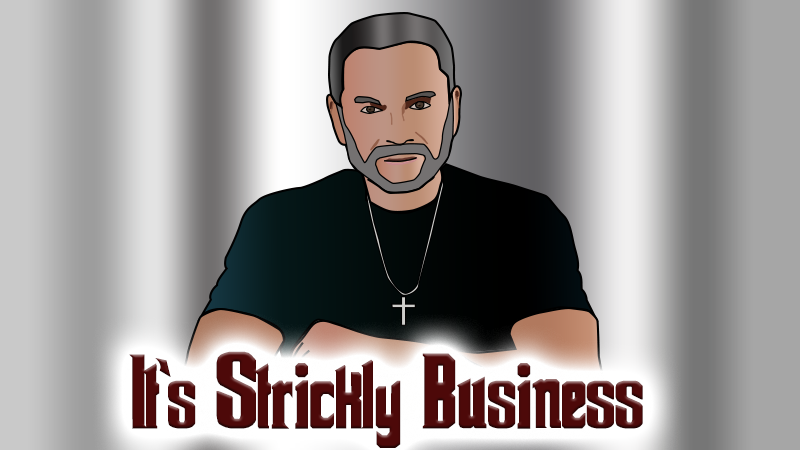In the ruthless world of business, preparing your business for success means investigating the mysteries of money and power. Unraveling these truths of Entrepreneurship, we explore case studies, first-hand stories, and small business startup success tips.
The Benefits of Entrepreneurship
Creating a business may seem overwhelming, but it is vastly rewarding. All of the most vivid success stories of millionaires, financial security, and wealth building began with a small dedicated group of like minded people with inspiration and innovation at the center of their focus.
Headline Story: Mafia Boss Chooses Entrepreneurship Over Crime

“Once upon a time, there was a man named Michael who had worked as a boss for the notorious Italian mafia for many years. Micheal was known for his intelligence, stealth, and loyalty to the organization, but he had always secretly dreamed of living a different kind of life.
One day, Michael had the opportunity to create his own startup business, and he jumped at the chance. He used his skills and connections from his time in the mafia to carefully build his company from the ground up, and before long it was thriving.
As his business grew, Michael realized that he was no longer fulfilled by the dangerous and criminal lifestyle of the mafia. He wanted to live a peaceful, honest life, and he knew that he could never do that as a member of the organization.
So, Michael made the difficult decision to leave the mafia and focus solely on his startup. He worked hard to distance himself from his former life and build a new reputation as a successful and legitimate businessman.
Despite the risks and challenges he faced, Michael’s startup became a huge success, and he was able to live the peaceful and fulfilling life he had always dreamed of. He left the mafia and all of its dangers behind, and he never looked back.”
This is the true story of Michael Franzese, a former Captain of New York’s Notorious Columbo Crime Family. His path is an inspiration that even the most feared and hated individuals can pursue business and entrepreneurship as a means to achieve a better life.
His example is a staple-mark of entrepreneurship and highlights the redeeming qualities that differentiate a professional business man from his former Mafia image.
Starting A Company
Starting a company can be a complex and challenging endeavor, but it can also be a rewarding and lucrative business opportunity. Here are a few steps you can take to get started:
- Develop a clear Business Plan: Before you begin, it’s important to have a clear idea of what your software company will do, who your target market is, and how you plan to generate revenue. This will help you make informed decisions about your business and set yourself up for success.
- Build a team: You can’t do it alone! Depending on the size and scope of your company, you may need to hire employees or contractors to help you develop and market your products. Consider the skills and expertise that you need to bring your vision to life, and start building your team.
- Secure Funding: Depending on the scale of your business, you may need to secure funding to help you get started. This could involve seeking investment from venture capitalists, applying for small business loans, or seeking grants or other forms of financing.
- Develop and Test Your Product: Once you have a solid business plan and a team in place, it’s time to start developing your product. This will likely involve designing and prototyping your product, testing it for bugs and other issues, and refining it until it’s ready for release.
- Launch and market your Product: Once your software is ready, it’s time to launch it to the world. This will involve creating a website, setting up online stores or distribution channels, and promoting your product to potential customers.
Starting a company is no small feat, and it will require hard work, dedication, and a lot of planning. But with the right approach and a little bit of luck, it can be a rewarding and successful venture.
Case Study: Etsy
In 2010, a group of young entrepreneurs set out to create a new kind of online marketplace for handmade and unique goods. They called their company Etsy, and it quickly gained popularity among artists, crafters, and other creative individuals who were looking for a platform to sell their handmade items.
Etsy’s founders focused on building a strong community of sellers and buyers, and they worked hard to make sure that the platform was easy to use and navigate. They also put a strong emphasis on customer service, and they made sure that their sellers had the tools and support they needed to succeed.
As Etsy grew in popularity, it attracted the attention of investors, and in 2015, the company went public. Today, Etsy is a thriving business with over 60 million active buyers and more than 2 million active sellers. It has also expanded beyond handmade goods, and now offers a wide range of unique and creative products.
Etsy’s success is a testament to the power of building a strong community, offering a valuable and unique product, and focusing on the needs of customers. By following these principles, the company has become a leader in the online marketplace industry and a successful startup business.
Secrets To Success As a Startup

There are many factors that can contribute to the success of a startup. Some of the key drivers of success for startups include:
- A Strong, Viable Product: Successful startups have a product that meets a real need or solves a significant problem for its target market. The product should also be well-designed and easy to use, with a clear value proposition for its users.
- A Well-Defined Target Market: A strong understanding of the target market, including their needs, preferences, and behavior. This helps the company tailor its product and marketing efforts to effectively reach and serve its target audience.
- Scalable Business Model: Clear business models allows them to grow and expand quickly, while also being financially sustainable. This could involve generating revenue through subscriptions, licensing, or other recurring models.
- A Strong Team: A diverse, talented, and passionate team that is committed to the success of the company. This includes strong leadership, a clear vision and mission, and a culture that supports collaboration and innovation.
- Effective Marketing and Sales Efforts: Successful startups typically have a well-executed marketing and sales strategy that helps them reach and convert their target market. This could involve a variety of tactics, such as content marketing, social media marketing, search engine optimization, and sales enablement.
Overall, the success of a startup depends on a combination of factors, including a strong product, a well-defined target market, a scalable business model, a strong team, and effective marketing and sales efforts.
The Trademark Side: Which Comes First?
Anyone can register a business name in their local county, but the paramount instrument in a business is Trade. The buying and selling of goods and services is a sign that your product is viable and may have a market for interested buyers.
Supply, Demand, and Sales Channels will comprise the entirety of your businesses income, so make sure you have a clear idea of what those systems will look like and place them down on paper.
The Bottom Line: Income
As the saying goes “Your product is only worth what someone else is willing to pay for it“
Without any income, there will be no need to worry about the legal side at that point, it’ll be simply time to put up shop, so focus on that income and success will find its way.
Put yourself in the shoes of the customer, they earned that hard cash right? Make a strong value statement to gain interest. Each industry is unique and it can be fun to explore new aspects of each field.
The Warning Signs: Preventing a Failing Business
The most essential resource to prevent unexpected losses or bankruptcy is to pay close attention to your company’s balance sheet. If you haven’t put together a balance sheet yet, make it a priority to get a clear outlook on your incomes and outflows.
Reasons Why Small Businesses Fail
There are many reasons why businesses can fail. Some of the most common causes of business failure include:
- Lack of demand for the Product or Service: Many businesses fail because they are unable to generate enough demand for their products or services. This could be due to a variety of factors, including competition, changing market conditions, or a lack of understanding of the target market.
- Poor Management: Poor management or leadership can also contribute to business failure. This could involve mismanagement of finances, lack of strategic planning, or a lack of focus on the needs of customers or employees.
- Insufficient Funding: Insufficient funding is another common cause of business failure. This could be due to a lack of investment, mismanagement of funds, or a failure to generate enough revenue to cover expenses.
- Lack of Innovation: Businesses that fail to adapt to changing market conditions or customer needs may struggle to stay relevant and competitive. This can be especially challenging in industries that are rapidly evolving or facing disruptive technologies.
- External Factors: External factors such as economic downturns, natural disasters, or changes in government regulations can also contribute to business failure.
Overall, business failure can be caused by a variety of factors, and the specific reasons will vary depending on the business and its industry. By understanding the common causes of business failure and taking steps to mitigate these risks, businesses can increase their chances of success.
Business is Struggling? It’s Not Always Your Fault
As a business leader and entrepreneur, it is important to understand that many aspects of your Product success are dependent on a variety of conditions. Keep in the minds the needs of customers as they are approaching a sales point.
- Is Consumer Spending down? Recessions tighten budgets
- Are price & profit margins just too tight? Review costs
- Does your product have Seasonal Spikes? Check sales trends
- Did competitors release an unexpected competitive product? Rediscover your competitive edge
Interested In A Consultation?
Email us for a free quote on our expert Consultations, for promo add Subject Line as “Free Consult“
digitalfinancialmarket@gmail.com
Starting A Business FAQ
Why Is It So Hard To Start A Business?
How Can I Start A Business?
Why Should I Start A Business?
Small Business Case Study
Small Business Entrepreneurship
How Can I Be An Entrepreneur?
How Do Make an Income as an Entrepreneur?
How Do I Make Multiple Incomes?
How Do I Create A Startup?
Starting a Business For Beginners
This Article Contains Both Handwritten and AI Generated Content
Images are Rights Reserved

